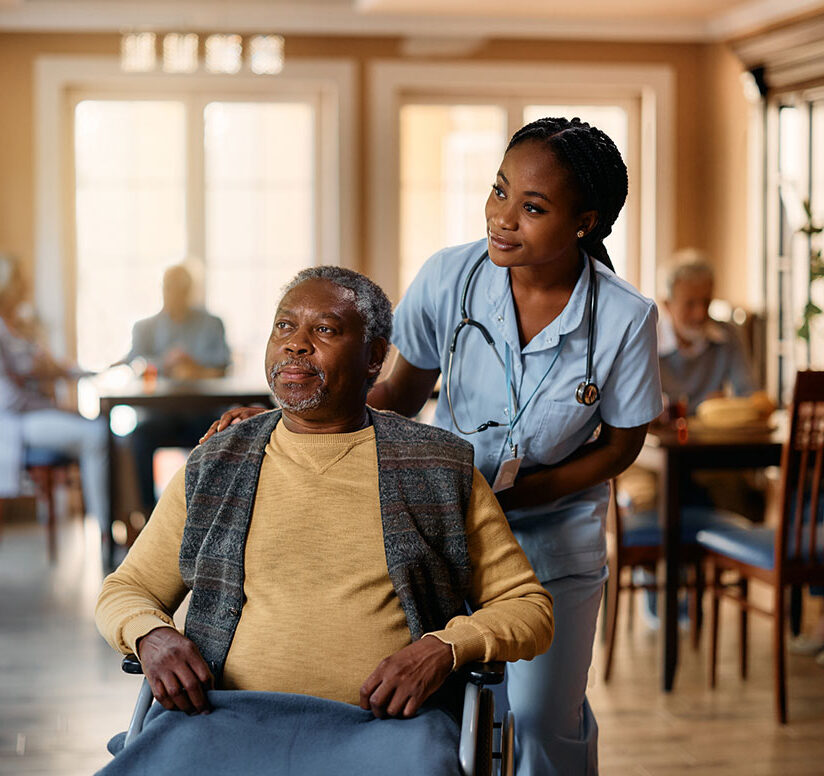CMS Makes Sweeping Changes to COVID-19 Survey Activities and Increased Oversight in Nursing Homes
Throughout the COVID-19 PHE, the Centers for Medicare and Medicaid(CMS) has temporary suspended and reprioritized surveys for nursing homes. The intent was to prevent the spread of COVID-19 and direct state agencies(SAs) to focus efforts on infection prevention and control. This nationwide effort created a backlog of complaint and recertification surveys.
On November 12th, 2021, CMS released MEMO: QSO-22-02-ALL that directs State Survey Agencies to address the backlogs by the following steps:
- Revising criteria for conducting Focused Infection Control (FIC) surveys;
- Guidance for resuming recertification surveys; and
- Temporary guidance and monitor flexibilities related to complaint investigations.
State Agencies following the targeted approach from CMS will allow their efforts to identify concerns for all aspects of quality of care, quality of life and ensure health and safety.
Focused Infection Control Surveys (FIC)
CMS required SAs to survey nursing homes using a FIC survey within 3-5 days of that organization having 3 or more new COVID-19 confirmed cases OR 1 confirmed resident case in an organization that was previously COVID-19 free.
NOW: CMS will no longer require FIC surveys to be conducted in this time frame and will direct SAs to continue to perform annual FIC surveys of 20% of nursing homes. These surveys will be prioritized for organizations that are reporting new COVID-19 cases and have low vaccination rates.
Recertification Surveys
CMS previously suspended recertification surveys and routine inspections as part of the response to the COVID-19 pandemic and directed SAs to prioritize FIC and immediate jeopardy situations.
NOW: State Agencies will be able to resume recertification surveys on a regular basis and will do so by establishing new intervals. The intervals will be based on an organization’s next survey NOT on the last survey conducted prior to the COVID-19 PHE.
SAs should prioritize recertification surveys according to the potential risk to residents such as facilities with history of noncompliance, or allegations of noncompliance with any of the following:
- abuse/neglect
- infection control
- violations of transfer or discharge requirements
- insufficient staffing or competency
- special focused facilities and/or SFF candidates
- and other quality-of-care issues such as falls and/or pressures ulcers
In addition, CMS is allowing certain mandatory survey tasks to be discretionary or triggered based. If a SA does not have a triggered based on a concern identified during off site preparatory activities such as complaints to be investigated during the survey, or those that raise to ombudsman, and pervious patters of citations.
Mandatory survey tasks eligible for temporary discretion include:
- Resident Council Meeting
- Dining Observation Task
- Medication storage
Each survey area has specific guidelines and markers for the SA to act in completed the mandatory survey tasks.
Investigating Complaints with the Recertification Survey
In the Long Term Care Survey Process Procedure Guide(LTCSP), surveyors must utilize the efficiencies built into the software application to investigate complaints with the recertification surveys.
NOW: the current survey process does not restrict the number of complaints brought onsite, however, if a survey team is including the maximum number from the LTCSP, the survey team size will be increased or the duration of the survey will be lengthened.
Complaints/Facility-Reported-Incidents(FRIs)
CMS prioritized SAs to investigate complaints/FRIs triggered as an Immediate Jeopardy (IJ) during the COVID-19 PHE.
NOW: CMS is issuing guidance for SAs to investigate the backlog of complaints/FRIs according to level of triage. This will remain in effect ONLY until States are able to clear any backlogs and resume routine operations.
- LTC Complaints and FRIs triaged as IJ or non-IJ High are required to be investigated as soon as possible.
- LTC Complaints and FRIs triaged as non-IJ Medium may be investigated at next scheduled standard survey if received within one year of the scheduled standard survey date or if the allegation involves staff to resident abuse, neglect, or misappropriation of resident property, regardless of the date received.
- LTC Complaints and FRIs triaged as non-IJ Low – SAs are not required to investigate backlogged complaints/FRIs at this level and may be closed in ACTS at the next standard survey
CMS does acknowledge that the investigation of complaints/FRIs likely will result in the extension of the length of a survey and this may make the standard of a 15 month recertification survey challenging. CMS will work with SAs to establish reasonable recommendations and timeframes.
Increasing Oversight in Nursing Homes
After months of non-traditional survey processes, CMS is very concerned about the health, safety and well-being of residents in nursing homes. There will now be a focus on increased weight-loss, pressure ulcers, abuse or neglect and other quality of life and quality of care issues. The investigation of potential areas during survey will follow:
- Surveying for nurse competency: Ensure temporary nurse aides are competent to perform skills and techniques necessary to care for residents’ needs
- CMS is alerting SAs to pay attention to compliance with the requirements for nursing services regarding sufficient nursing staff with appropriate competencies and skills sets to provide nursing and related services. Surveyors will be reviewing the guidance at tag F-726
- SAs will continue to focus on efforts of identifying inappropriate use of antipsychotic medications and emphasis on non-pharmacological approaches and person-centered care practices
SAs are assessing other care areas of concern such as unplanned weight loss, loss of function/mobility, depression, abuse/neglect, or pressure ulcers. LeadingAge members should review the minimum data set(MDS) assessments, quality indicators, and their antibiotic stewardship program to gage the areas of concerns in their organization.
The CMS MEMO outlined is effectively immediately.

Most Recommended
October 15, 2025
 Shutdown Week Three: Impact of Ongoing Closure on Affordable Housing
Shutdown Week Three: Impact of Ongoing Closure on Affordable Housing
February 03, 2026
Fiscal Year (FY) Funding 2026
October 07, 2025
Immigrant Workforce Matching Program Brings Workforce Relief
Recently Added
February 13, 2026
Redefining Memory Care Engagement: New CAST Case Study
February 13, 2026
Prioritizing User-Informed App Design
February 13, 2026
CAST Members in the News
February 13, 2026



